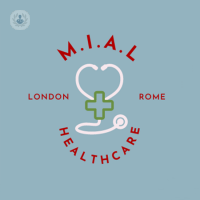Inherited cardiac conditions
Dr Oliver Guttmann - Cardiology
Created on: 10-11-2018
Updated on: 09-29-2023
Edited by: Carlota Pano
What are inherited cardiac conditions?
These are a group of heart conditions that are passed on genetically through families. They can affect people of any age, and vary in terms of how serious they are. The following are the main types of inherited cardiac conditions:
- Inherited cardiomyopathies (disease of the heart muscle, affecting size, structure and shape)
- Inherited arrhythmias (abnormal heart rhythm)
- High cholesterol
Prognosis of inherited cardiac conditions
Some inherited heart conditions can be life-threatening, particularly if they are left undiagnosed and untreated, as this can result in heart failure or cardiac arrest. In fact, it is not uncommon for a family’s first realisation of an inherited heart condition to come after a seemingly sudden and unexplained death in the family.
Symptoms of inherited cardiac conditions
Often, inherited heart conditions do not have symptoms, however, the following may be experienced:
- palpitations
- blackouts (syncope)
- dizziness
Medical tests to diagnose inherited cardiac conditions
Inherited cardiac conditions can be challenging to diagnose, however, the following are indicative of such a condition to a doctor or specialist:
- An unexplained death in the family
- Your family has a history of premature or sudden deaths
- You were diagnosed with angina or suffered a heart attack at a very young age
- You have a family member with an inherited cardiac condition
What are the causes of inherited cardiac conditions?
Inherited cardiac conditions result from a faulty gene that can be passed on to your children, hence they are inherited from your parents. A gene can become faulty as a result of a mutation or fault in a gene.
There will be a 50 per cent chance of inheriting this faulty gene from your parents. If you do inherit this faulty gene, there is also a 50 per cent chance that you will pass it on to your own children.
Can inherited cardiac conditions be prevented?
As these conditions are inherited, they cannot be prevented, however if you are aware of such conditions affecting family members, you can undergo screening to assess the health of your heart. Some people will also undergo genetic testing to check for the faulty gene that has caused the inherited cardiac condition in their family member.
Treatments for inherited cardiac conditions
Seeking treatment for an inherited cardiac condition will reduce the chance of cardiac arrest, heart attack, and developing more serious coronary heart disease.
Treatments will often consist of having a pacemaker installed or an implantable cardioverter defibrillator (ICD) device. An ICD sends electrical pulses to the heart to regulate heart rhythm in people who have an inherited arrhythmia.
New treatments for inherited heart conditions are always being researched and developed, as well as ways to better identify and test for these conditions.
Which type of specialist treats inherited cardiac conditions?
Cardiologists would treat inherited cardiac conditions.












